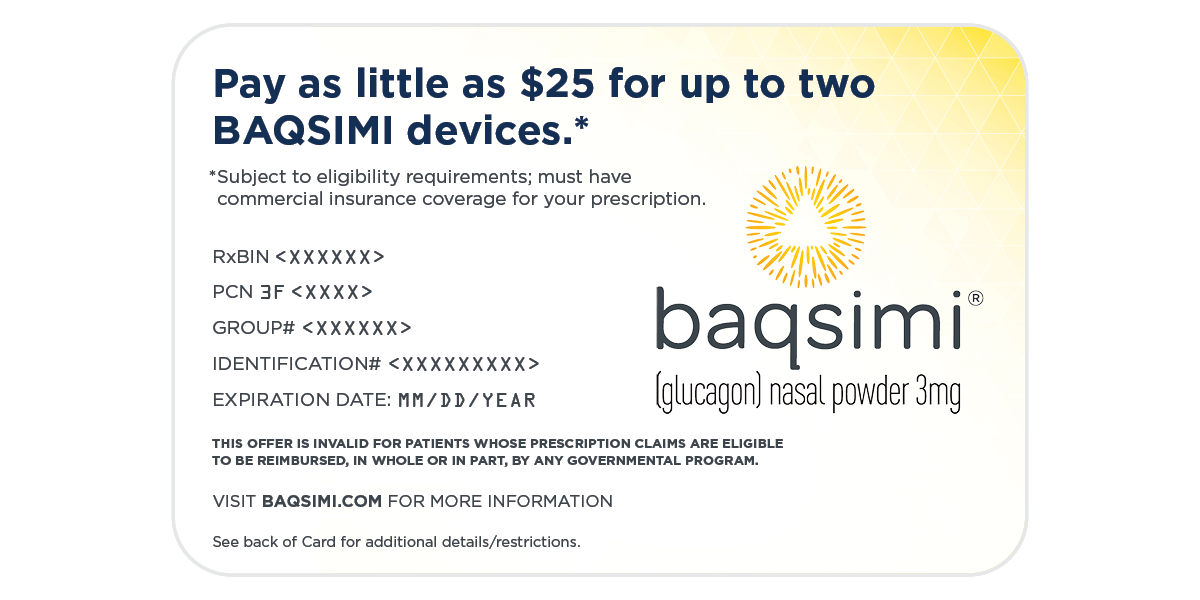Resources
Help eligible commercially insured patients pay as little as $25* for their BAQSIMI prescription.
*Government beneficiaries excluded, terms and conditions apply. Must have commercial drug insurance coverage for your prescription.

For one co-pay, your patients can get up to 2 BAQSIMI devices
Terms and Conditions:
Program expires at the end of each calendar year. Patients must have coverage for BAQSIMI through their commercial drug insurance coverage to pay as little as $25 for up to two BAQSIMI devices (1 two-pack or 2 one-packs). Maximum of 12 fills per year. Offer subject to a monthly cap of wholesale acquisition cost plus usual and customary pharmacy charges and a separate annual cap $1800. Offer void where prohibited by law. Patient is responsible for any applicable taxes, fees, or amounts exceeding monthly or annual caps. This offer is invalid for patients without commercial drug insurance or whose prescription claims for BAQSIMI are eligible to be reimbursed, in whole or in part, by any governmental program, including, without limitation, Medicaid, Medicare, Medicare Part D, Medigap, DoD, VA, TRICARE®/CHAMPUS, or any State Patient or Pharmaceutical Assistance Program. Offer void where prohibited by law and subject to change or discontinue without notice. Card activation is required. Subject to additional terms and conditions, which can be found here.
TRICARE® is a registered trademark of the Department of Defense (DoD), DHA.
SELECT IMPORTANT SAFETY INFORMATION
Contraindications
BAQSIMI is contraindicated in patients with pheochromocytoma because of risk of substantial increase in blood pressure, insulinoma because of risk of hypoglycemia, and known hypersensitivity to glucagon or to any of the excipients in BAQSIMI. Allergic reactions have been reported with glucagon and include anaphylactic shock with breathing difficulties and hypotension.

Write a prescription for BAQSIMI
Prescribe BAQSIMI Two Pack™ to help prepare your patients today—just in case
- Help patients prepare by having a BAQSIMI device in multiple locations
- BAQSIMI is available as a one-pack and two-pack
Use the BAQSIMI demo device to educate patients on administration
- To request a demonstration device, ask your local sales representative or call 1-800-423-4136
- Note: The BAQSIMI demo device is NOT to be provided to patients or caregivers


